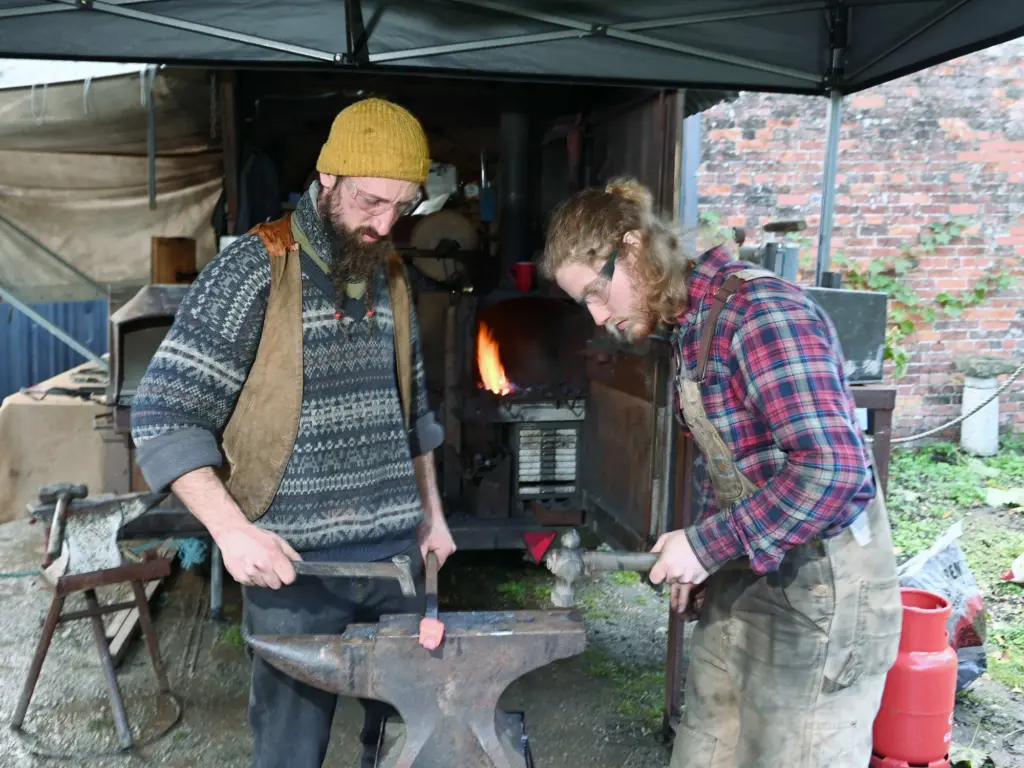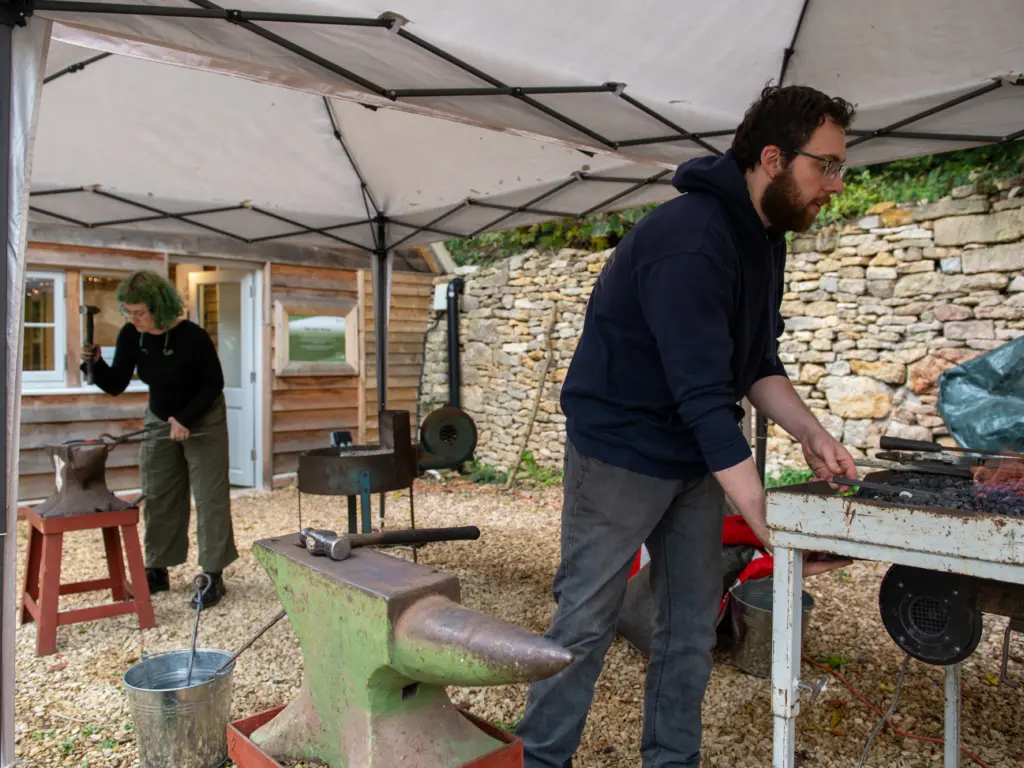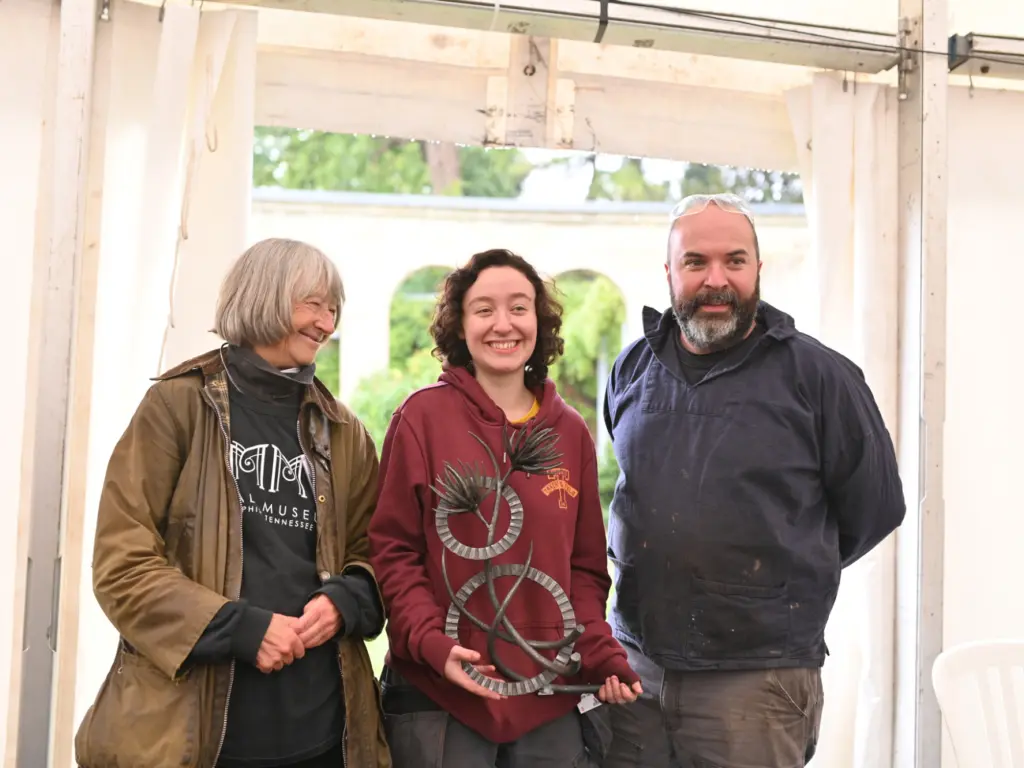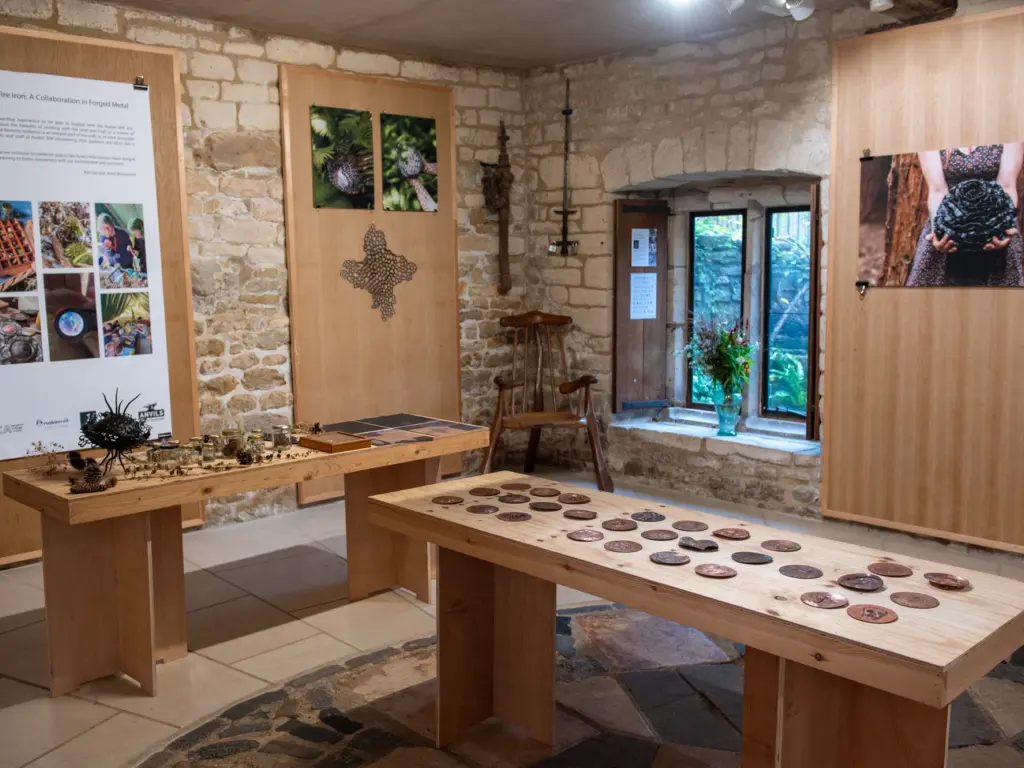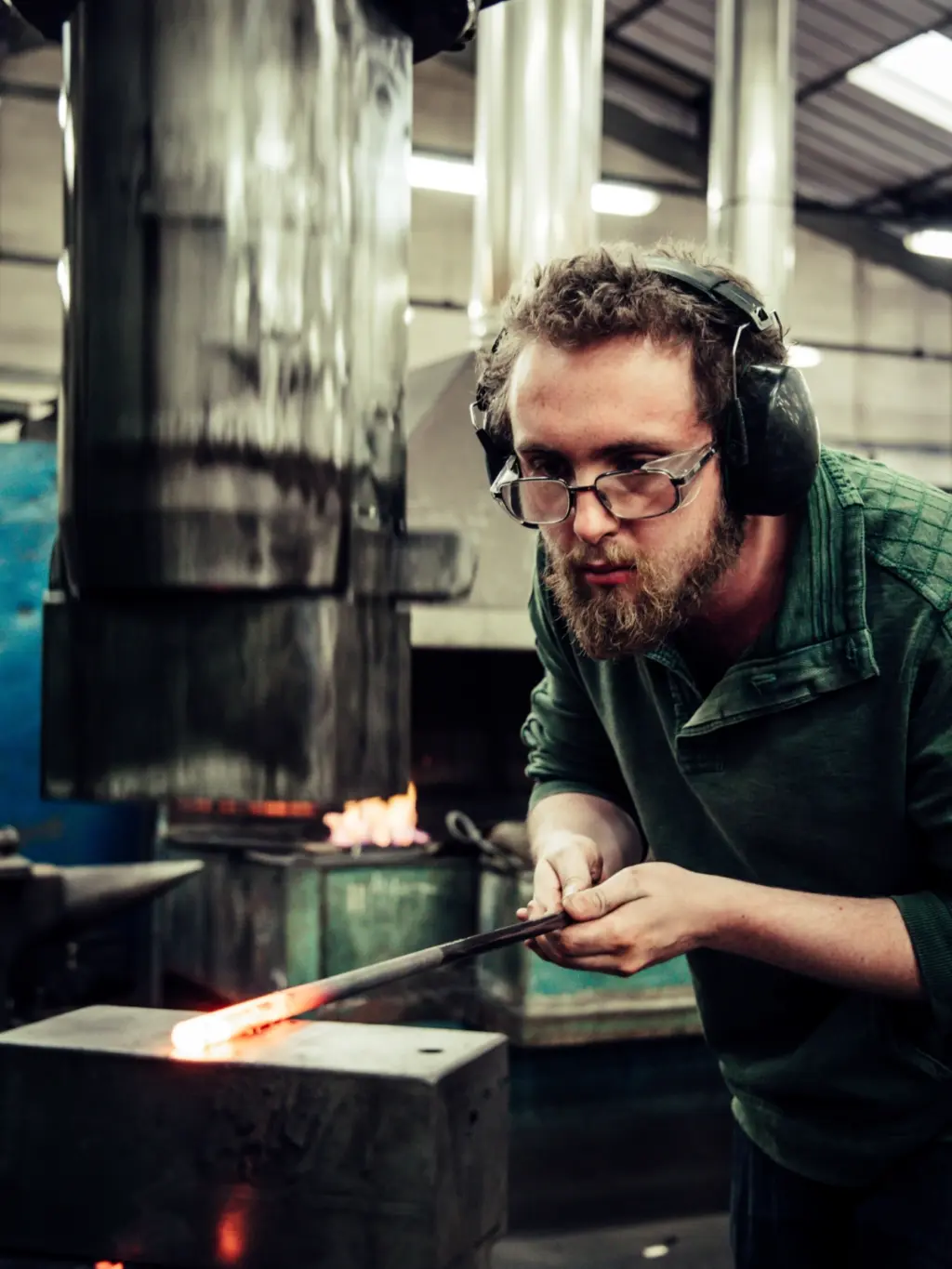
- Home
- A-Z of courses
- BA(Hons) Artist Blacksmithing
BA(Hons) Artist Blacksmithing
-
Duration
3yrs full-time
-
Cost
£9,275 p.a.
-
Course code
W720
-
Institution code
H18

Forge your future by joining a degree course at the forefront of education in forged metal arts, where creativity meets craftmanship.
Overview
What our students do...





















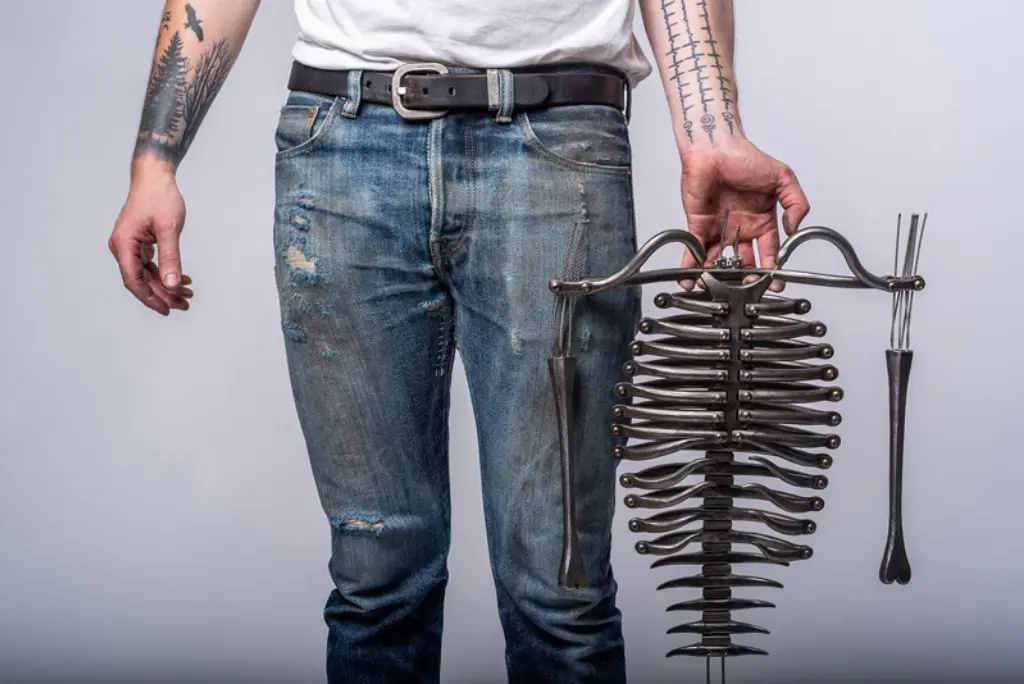
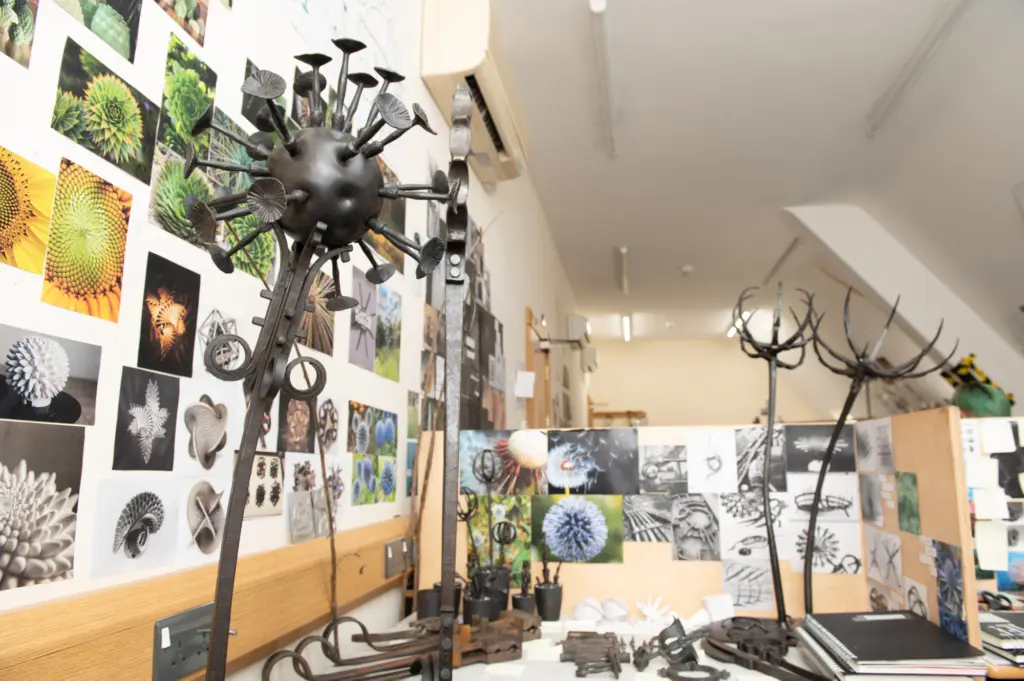
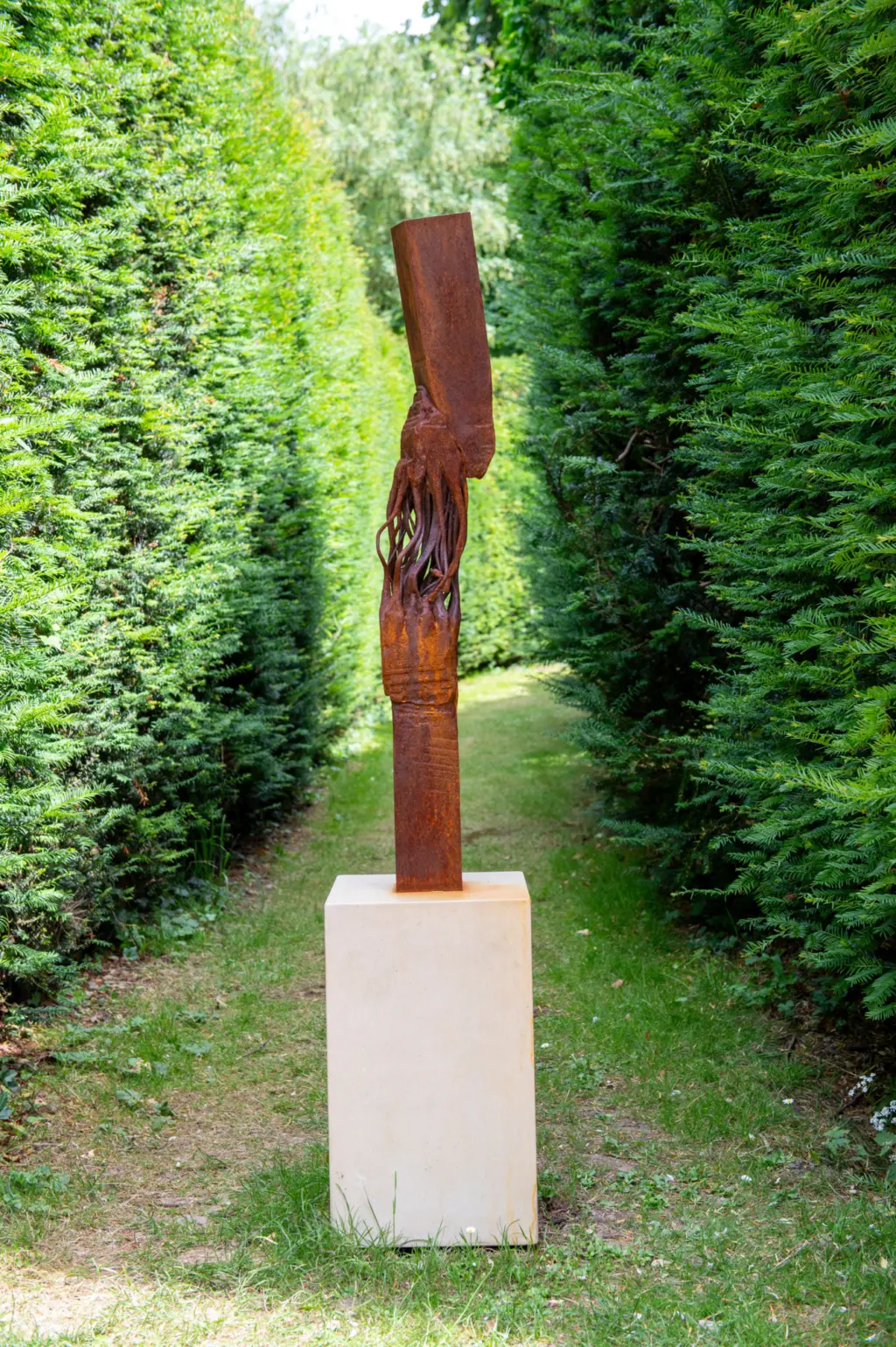
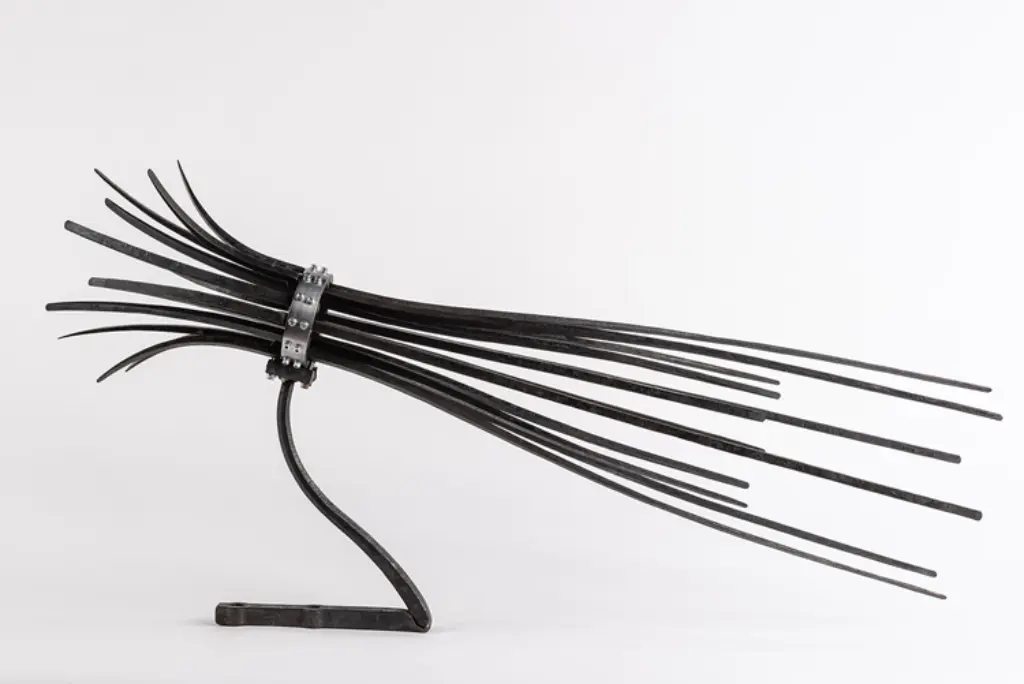
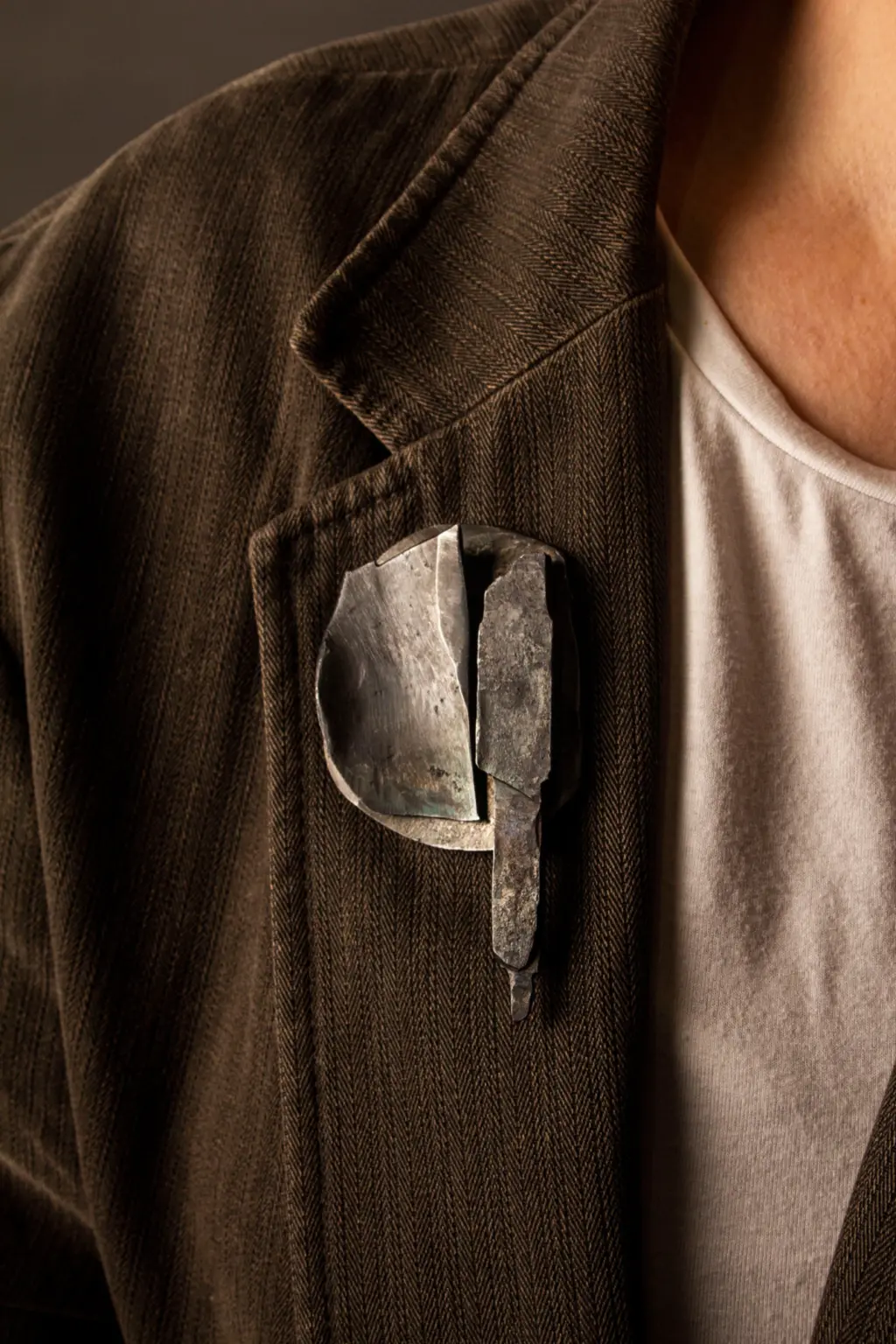
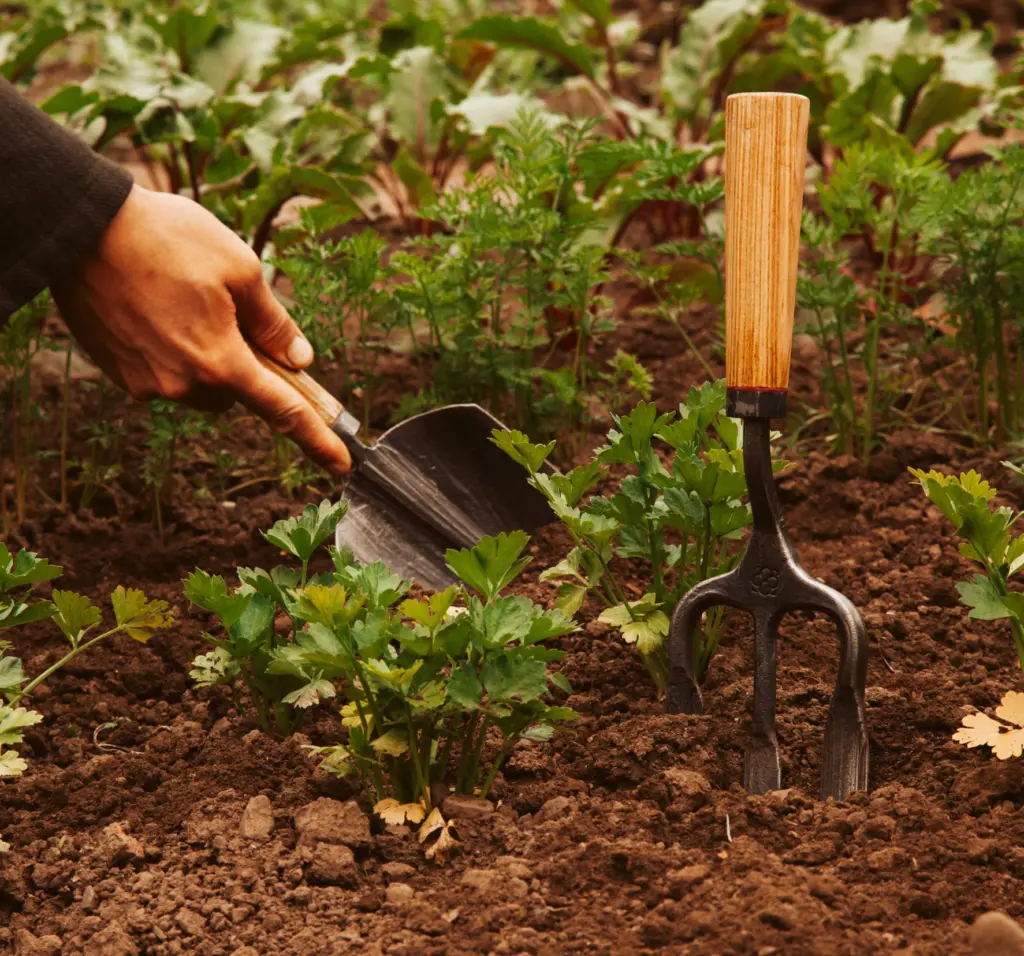
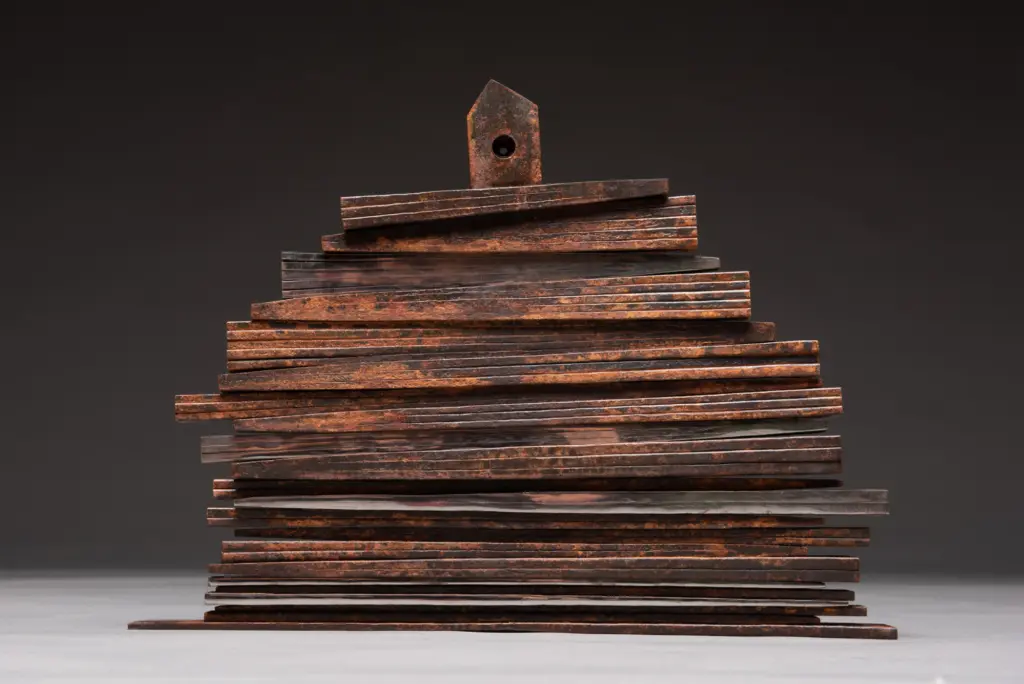
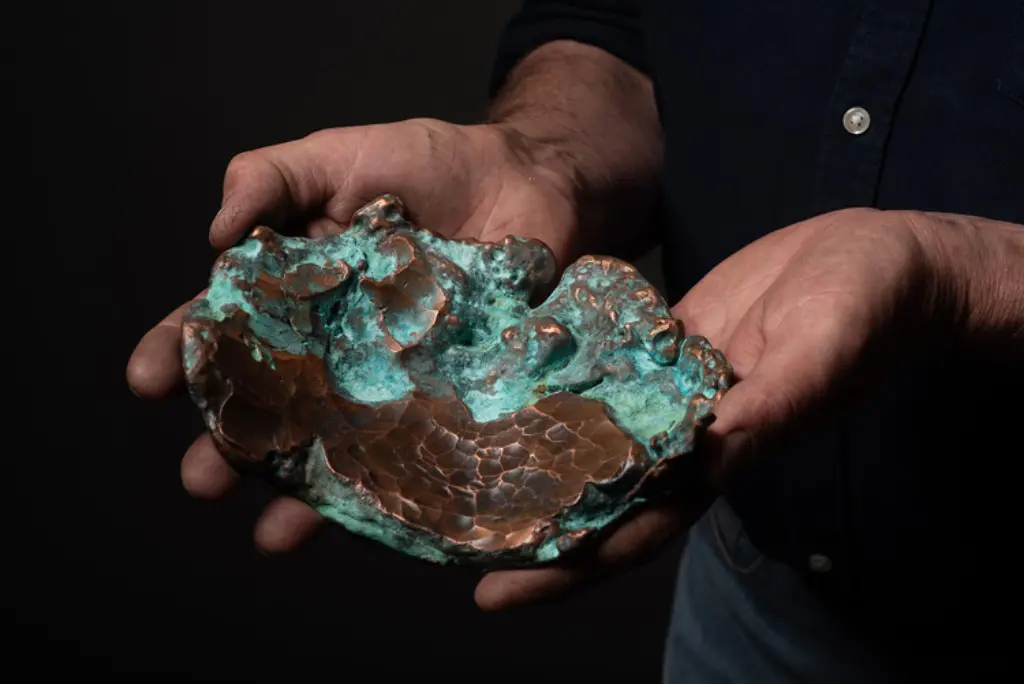
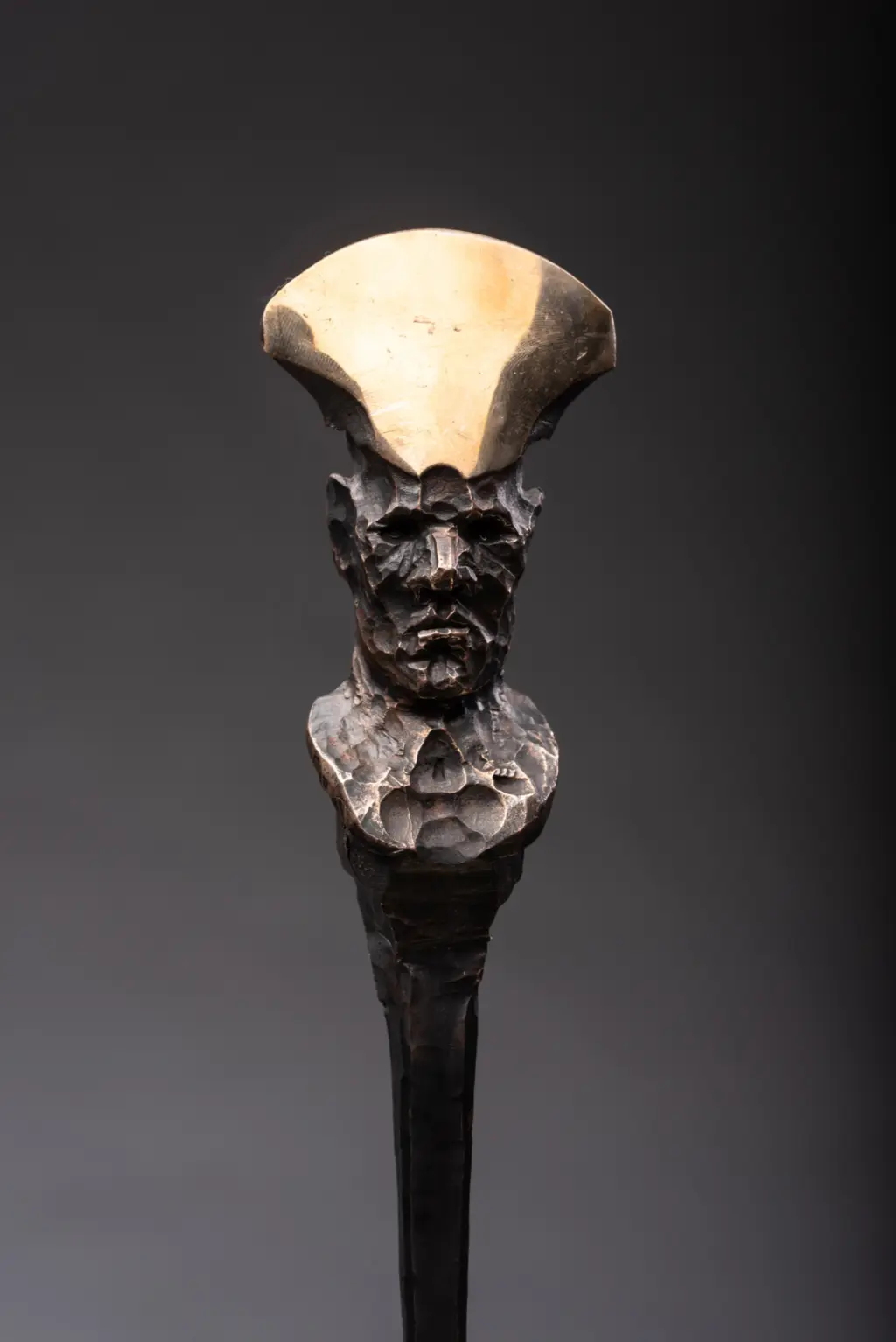
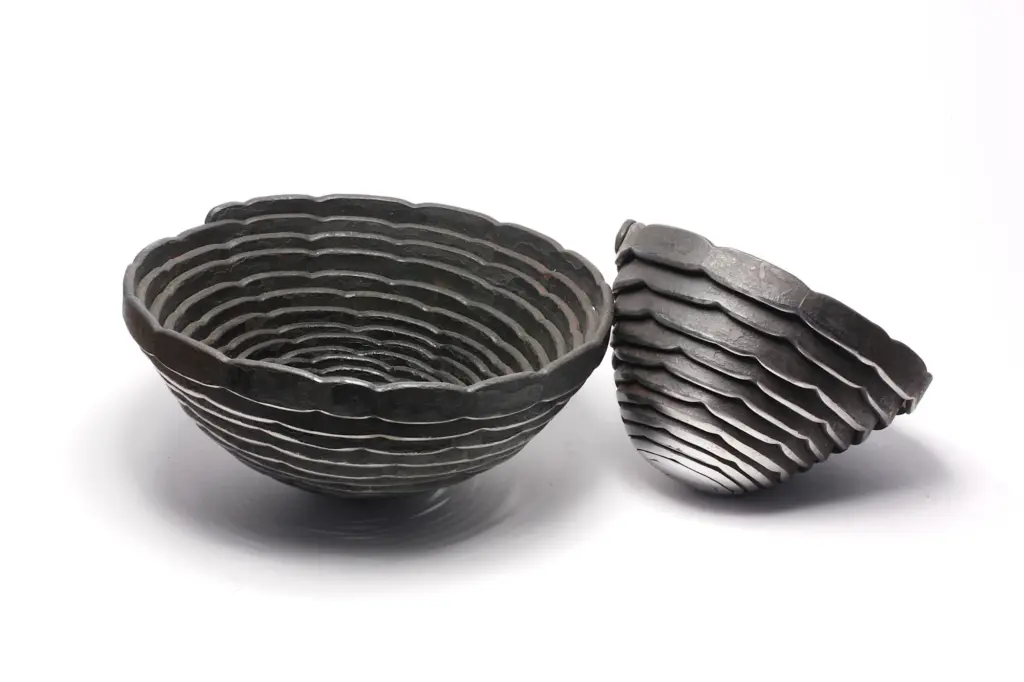
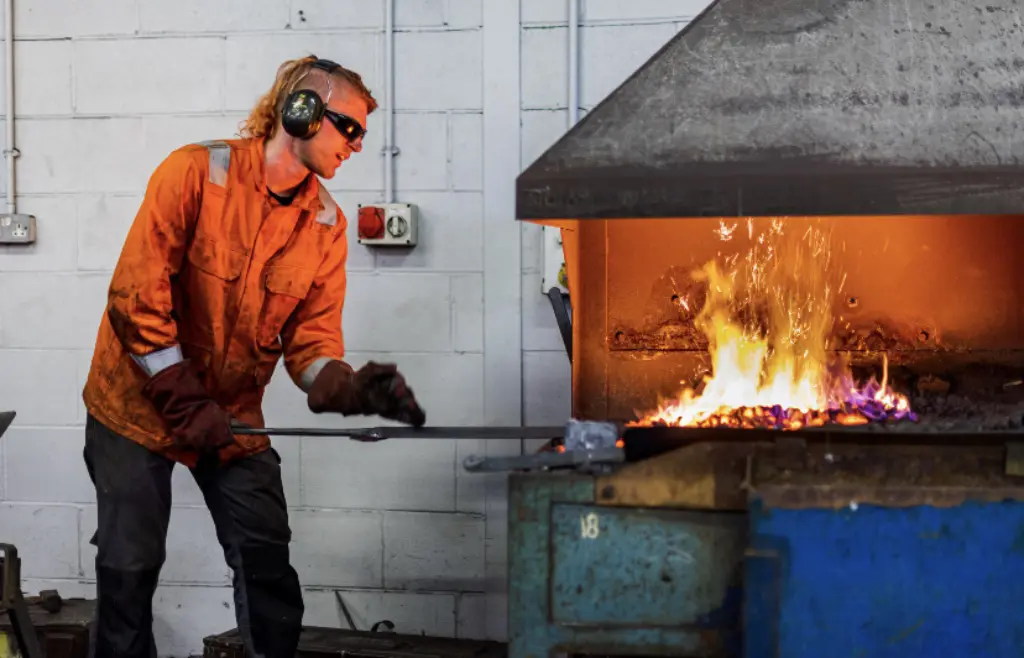


Forge a career you'll love
Stats and figures
100 %
In a recent NSS survey students were asked 'How well have teaching staff supported your learning?' and the BA(Hons) Artist Blacksmithing Course achieve 100% for this and many other questions. Leading to an overall score of 90.6.
VISITING LECTURERS
- Leah Aripotch, USA
- Hector Cole, UK
- Paul Mikula, South Africa
- Roberto Giordani, Italy
- Matt Jenkins, Canada
- Pete Mattila, Australia
- Tobias Birgersson, Sweden
- Egor Bavykin, Russia
- Christoph Friedrich, Switzerland
- Adam Hawk, USA
- Rebekah Frank, USA
- Grace Horne, UK
- John Rigoni, USA
- Jack Waygood, UK
- Ellen Durkan, USA
- Stephen Yusko, USA
- Claudio Bottero, Italy
PROFESSIONAL WORK EXPERIENCE
- Alex Pole Ironwork, England
- Cox London, England
- Center for Metal Arts, USA
- Halls Conservation Ltd, England
- Topp & Co, England
- Calleb Kullman, USA
- The Cart Shed, England
- Fresh Air Sculpture, England
- Matt Jenkins, Canada
- Junko Mori, Wales
- Ratho Byres, Scotland
- Christoph Friedrich, Switzerland

Forging futures
What our students say
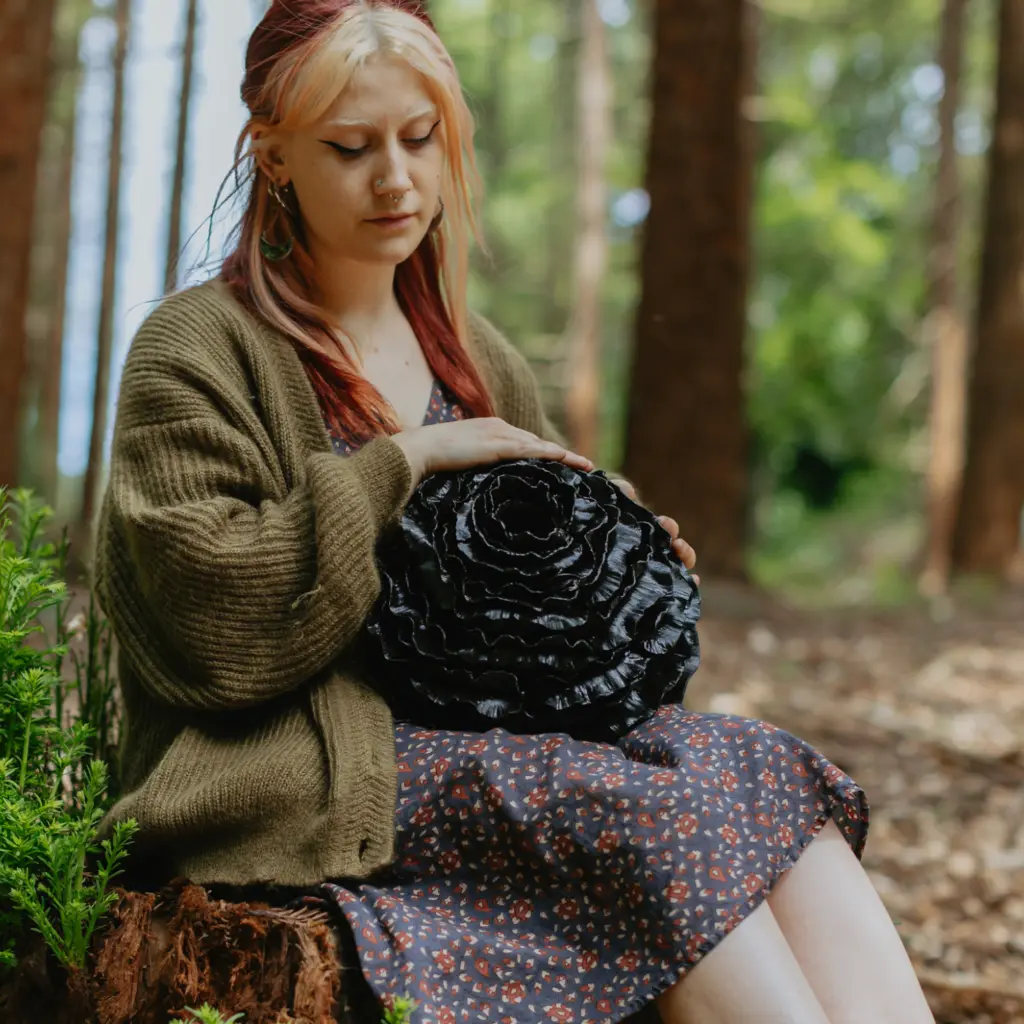
The Artist Blacksmithing Degree fostered resilience by encouraging me to trust my instincts, embrace creative risks, and learn from challenges. It planted the seed for a more authentic approach to my forged metalwork practice, grounded in my unique strengths and creative process.
Ren Garside
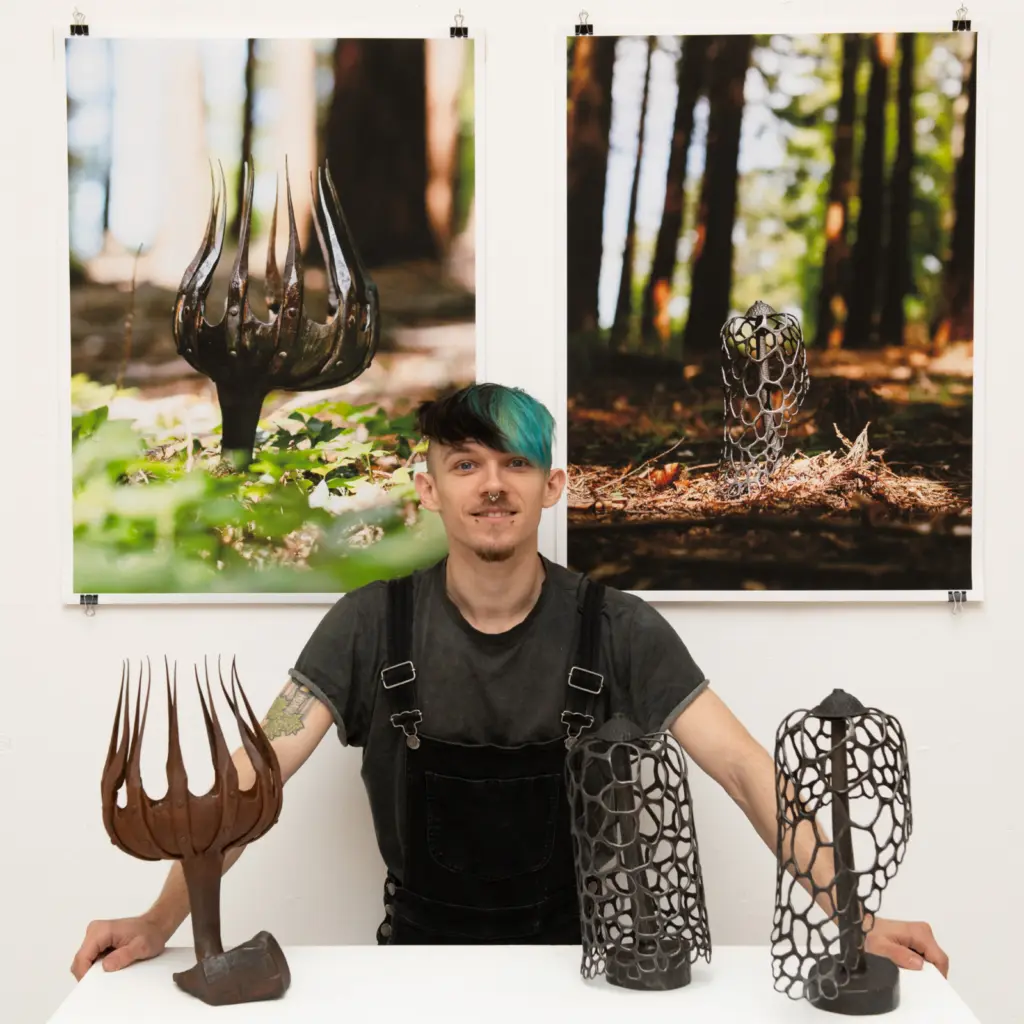
The course and staff support each student's unique creativity. I've gained confidence in researching, creating, and presenting my work—something I hadn't experienced before this degree.
Bradley Wills
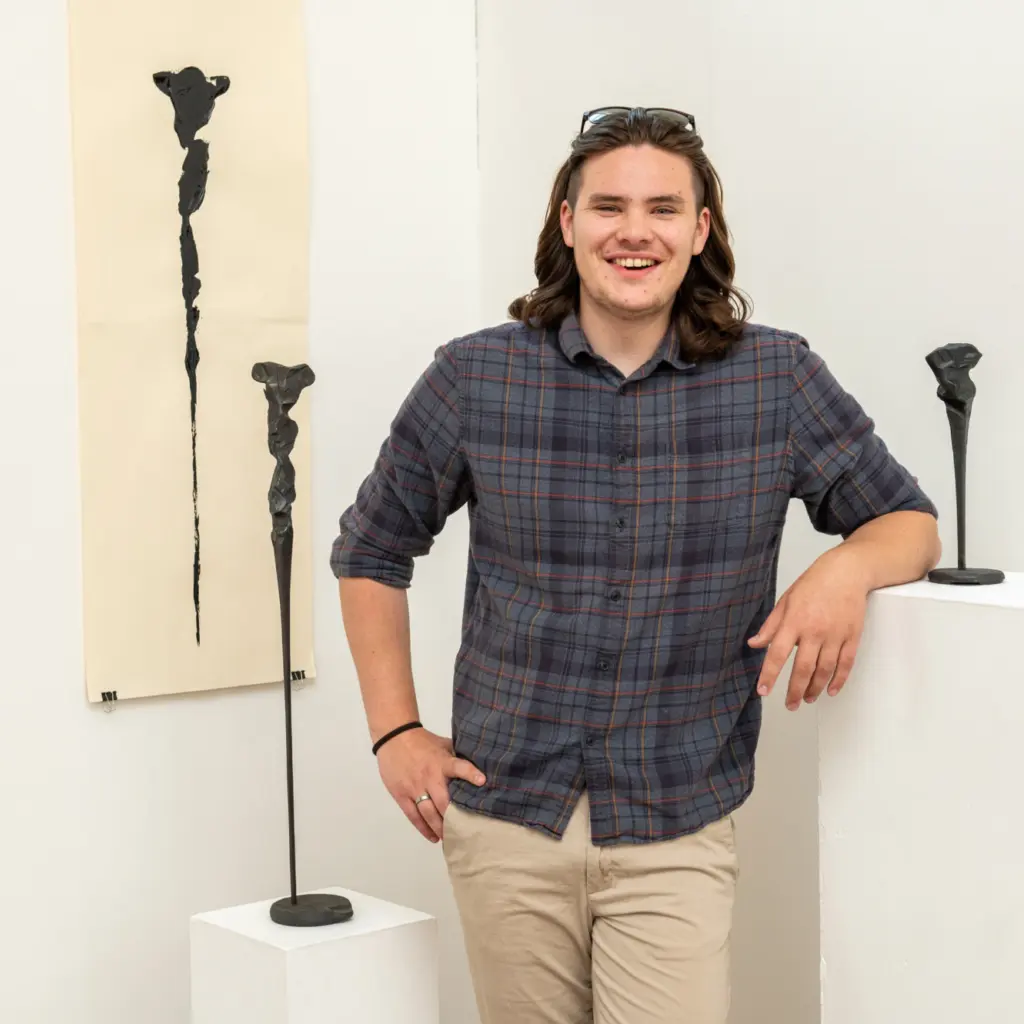
This course has truly transformed the way I think and view the world. It encouraged me to be more experimental and playful with materials, while also helping me become more thoughtful and confident in my ideas. Over the past three years, I’ve been given the chance to grow and change, and now I feel ready and excited for what will come next.
Oliver Cowell

The creative community around the course is outstanding. Being surrounded by like-minded creatives was key to developing my skills as a maker. It's opened up a world of opportunity for me going forward.
Nathan Forster
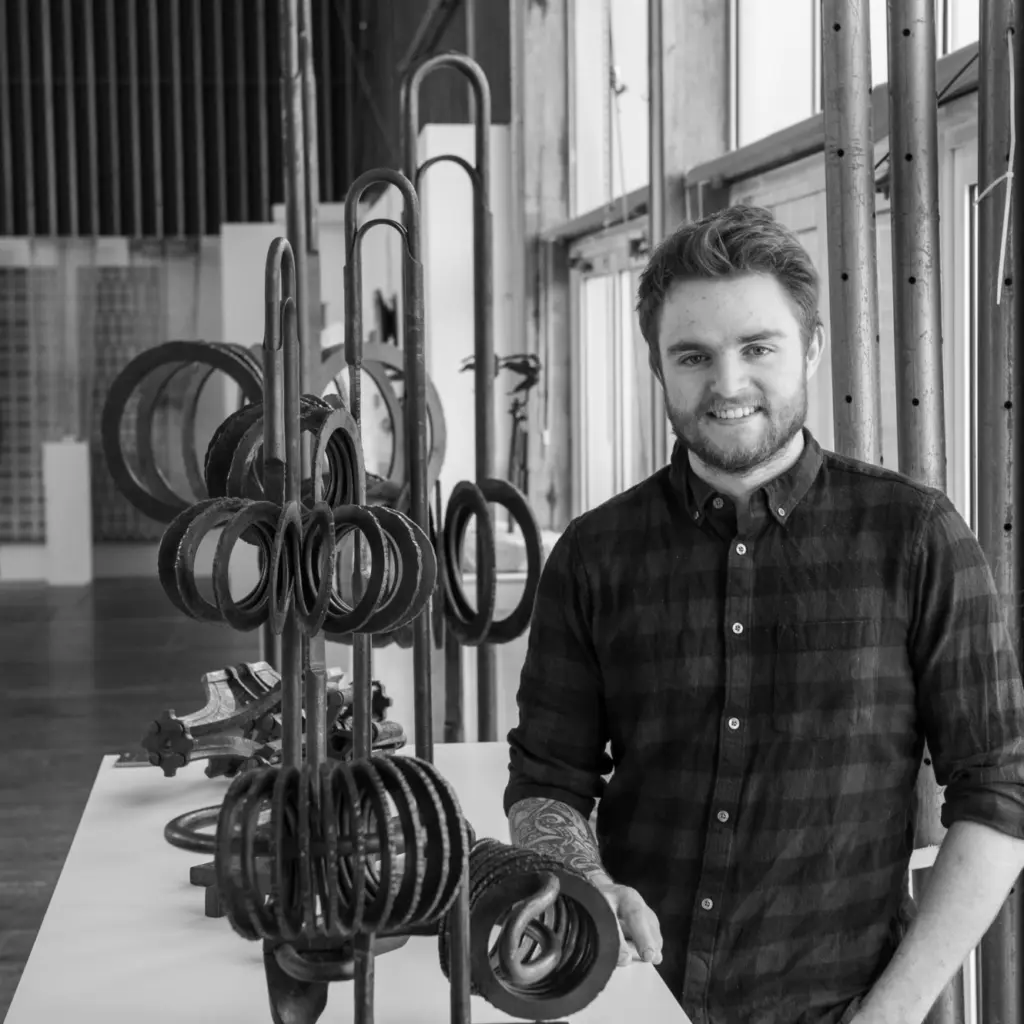
The Artist Blacksmithing Degree has been invaluable in shaping my forging practice, allowing me to advance my skills within a creative environment where traditional craft meets contemporary art theory. Most importantly, having the space to design, experiment, refine, and fully explore the plasticity of the material—surrounded by like-minded individuals—was truly unbeatable!
Bran Davies

The Artist Blacksmithing degree course gave me much more than just skills training. It taught me to question everything, and to really look at the details. So now I am always asking myself: How can I make this simpler, or better? Most of all, it gave me three years to explore, without the pressure of business.
Sam Pearce
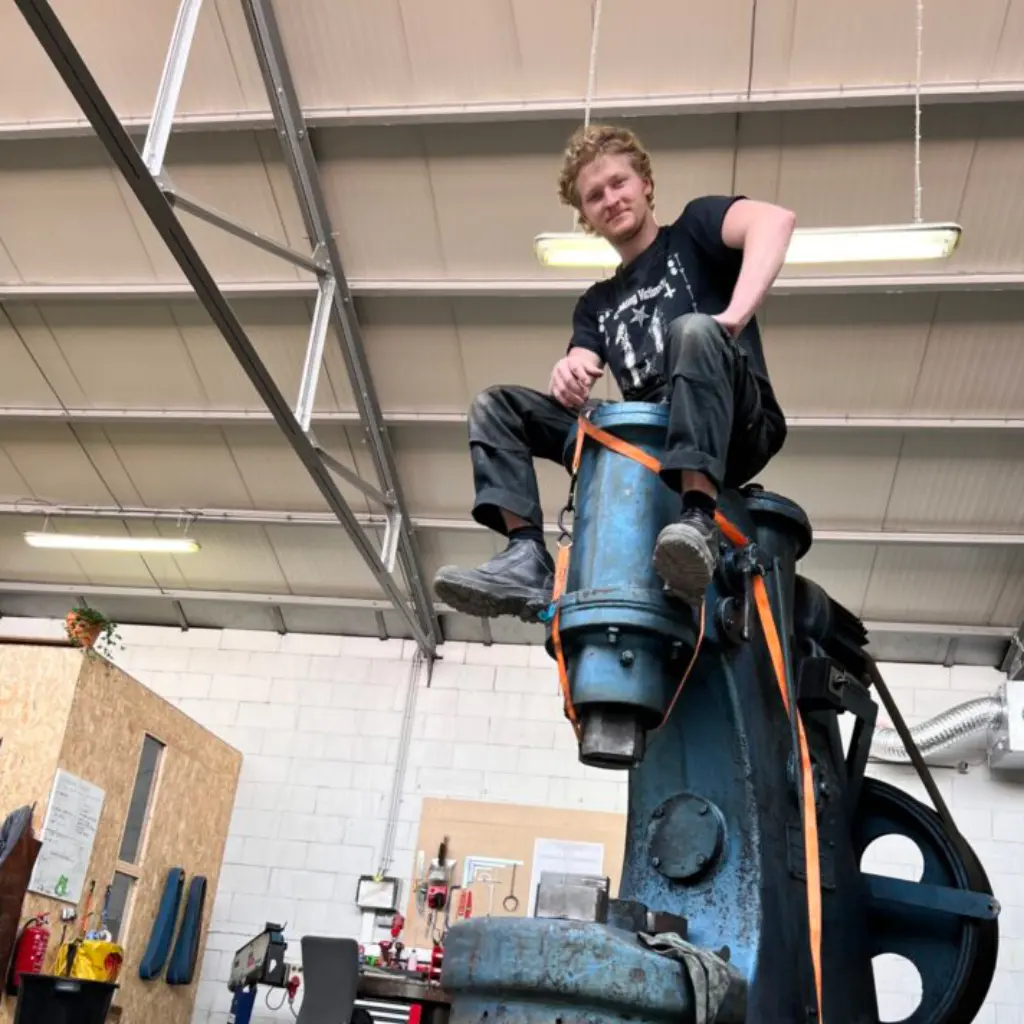
The Artist Blacksmithing degree allowed me to find what I’m really driven by and helped me lay out a direction in which I would like to progress as a maker. The course itself is more than just learning the craft of blacksmithing, it also covers a lot of critical thinking and translating that into an idea, and into a tangible design.
Sam Matthijs

The artist blacksmithing degree laid the groundwork for my creative process. The time spent discussing design, aesthetic and creative values with my fellow students gave me the self-assurance to confidently approach challenging design scenarios and to sell my work.
Toby Forbes Gower
Teaching, Learning & Assessment
Embark on a Creative Journey. Imagine starting your day forging at the National School of Blacksmithing, where your creativity comes to life. In the afternoon, dive into the cutting-edge world of design in our state-of-the-art digital skills centre. Here, you’ll unleash your imagination with tools like laser cutters, 3D printing, and 3D scanning, enabling you to visualize, iterate, and rapidly test your ideas before bringing them to life at the forge.
The next day, step into your dedicated design studio, where you’ll draw and innovate with a variety of materials. Experiment with clay, wood, glass, copper, and aluminium, testing your concepts and designs before returning to the forge. On another day, engage in stimulating lectures and seminars that sharpen your critical thinking skills through lively analysis, evaluation, and debate, all supported by our extensive Art & Design library.


Engage in our outreach projects and deliver impactful workshops, such as Spoons from the Wood and Tools for Schools. These initiatives not only allow you to share your skills, but also foster connections with vulnerable adults and primary school children; enriching both their lives and yours.
Exhibit your work at prestigious events like Hereford Cathedral, Fresh Air Sculpture in Quenington, and New Designers in London. These platforms showcase your talent to industry professionals, opening doors to new opportunities and collaborations.
Join the Ferrous Festival, an international celebration of Artist Blacksmithing. This vibrant event features workshops, masterclasses, and exhibitions, providing a unique chance to meet professionals, exchange ideas, and learn about the pathways to success in the field. The festival is a testament to the strength of community, where artists come together to inspire and uplift one another


A robust and resilient creative practice is founded on the application of critical thinking skills, from idea development in the studio to process execution in the workshop.
During the course, your critical thinking will be honed through lectures, seminars and studio discussions. You will learn to enrich and contextualise your emerging practice through reflection on themes and processes in historical and contemporary making, and gain knowledge about cultural and critical theory. Through this, you will become equipped with skills in research, analysis and evaluation. The aim is for you to learn to express your ideas within your profession and in a way that is specifically relevant to you realising your authentic creative voice.
By graduation you will have identified your place in contemporary art practice and be able to articulate your position with clarity and confidence.
Hereford College of Arts has a diverse mix of students, including people with different learning styles and needs. We have a positive, inclusive atmosphere where all of our students are able to access support for their studies. Find out more here.
Workshops & Resources

Individual studio space
You have your own studio space; where ideas are made real and lasting connections are made. Filling its walls compliments reflective book work, driving the design process forward; current thinking made visible through drawn and made tests. Studio culture is essential to the success of your design and make projects.
Book an Open Day
Forges
The National School of Blacksmithing boasts forty-two side blast coke forges where you are taught the fundamentals of blacksmithing. There are also propane forges for working longer sections with more consistent heat control. The Tutors at the National School of Blacksmithing bring over 150 collective years of forge experience.
Book an Open Day
Forge equipment
The National School of Blacksmithing provides four power hammers, a 25-ton hydraulic press, four fly presses, a large bandsaw, a cropper and two laying out tables. In addition to top and bottom swages, fullers, flatters, set hammers and a wide range of tongs including a variety of power hammer tooling. You are also taught how to safely use angle grinders with various attachments, oxy-acetylene and oxy-propane gas torches.
Book an Open Day
Welding
The Welding department at the National School of Blacksmithing allows for a variety of techniques to be taught including TiG, MiG/MAG, ARC/Stick, Gas, and Brazing These processes are taught in structured lessons to expand your skills and understand selecting the correct process.
Book an Open Day
Fabrication
The Fabrication tools you have access to at the National School of Blacksmithing include sheet metal benders, rollers, and a scroll jenny. The department has a large CNC Laser cutter which can cut up to 12mm thick plate, a large and small cropper, vertical and horizontal bandsaws, a hand plasma cutter, and a die grinder.
Book an Open Day
Queens 3D Workshop
In the Queens workshop, you can explore and experiment with various materials and processes in a well-equipped space. The facilities include small metals, wood, cold casting, 3D printing, and MDF/Plywood laser cutting, as well as welders and jewellers' benches. Techniques you can learn include woodturning, steam bending, resin and Jesmonite casting, various welding processes, 3D printing, vinyl, and veneering. Skilled Technical Demonstrators support your learning, ensuring a comprehensive experience.
Book an Open Day
Zones in the 3D workshop
The Queens workshop is divided into four zones: Metals (jewellery, silversmithing, machining, welding, fabrication), Woodwork (steam bending, lamination, woodturning), Cold Casting (silicone mold making, jesmonite, resin), and Digital Fabrication (scanning, laser cutting, 3D printing).
Book an Open Day
Small Metals
The Small Metals workshop has fully equipped communal and individual workspaces to practice your bench skills. The workshop is equipped for a variety of specialist processes and has two larger silversmithing hearths. The walls are adorned with process samples for inspiration, and the space is overseen by highly skilled Technical Demonstrators.
Book an Open Day
Ceramics & Glass
The Ceramics and Glass workshop offers an opportunity to explore the tactile nature of clay and the artistry of glass cutting, fusing and slumping. You can develop skills in slab building, slip casting, and throwing, either for conceptual art or commercial projects. Technical demonstrators are available to guide you through all processes.
Book an Open Day
Textiles
Our textiles workshops provide an open and accessible space to explore print, dye, weave, knit, and mixed media surface design techniques. Focusing on sustainability and innovation, you’ll combine methods from across various disciplines, pushing your creative boundaries throughout your degree. The technical support, along with academic and industry guidance, encourages you to develop an original, innovative design practice.
Book an Open Day
Library
A dedicated art and design library carefully curated by knowledgeable librarians who will support you to access the materials in the collection. Includes books and magazines from a comprehensive selection of creative disciplines, critical & cultural theory and specialist journals. Plus, study spaces and IT provision. A college hub and key workshop area.
Book an Open Day
Digital Design
Digital Design and Making is embedded into both curriculum and your practice. Offering the ability to test possibilities, accelerate iterations and resolve outcomes efficiently. The use of digital tools allows makers to visualise, prototype and refine project work across a range of materials and processes in additive and subtractive manufacturing.
Book an Open Day
Digital Skills Centre
Opened in 2024 our Digital Skills Centre is an alternative space to the Graphic and Media Design Studios to craft your designs. Kitted out with new Macs and PCs, the area is staffed by Digital Demonstrators who also run weekly intro and How To classes on design software.
Book an Open Day
Photography
Our photography studios and darkroom facilities offer extensive opportunities to gain hands-on experience with both digital and traditional techniques. You will acquire invaluable skills ensuring you take superb photos of your creative process and final outcomes. Work alongside professional photographers and technical specialists to get outstanding images of your work.
Book an Open DayConnecting you to the world
Meet the team

- School of Materials and Design
Del Done MBE,CWCB
Head of the School of Materials and Design and Course Leader for BA(Hons) Artist Blacksmithing, MA Forged Metal Arts, and MA Contemporary Crafts

- School of Materials and Design
Maxwell Anderson
Lecturer - BA(Hons) Artist Blacksmithing

- School of Materials and Design
Ruth Cameron-Swan
Lecturer - BA (Hons) Artist Blacksmithing

- School of Materials and Design
Rebecca Finney
Lecturer - School of Materials and Design

- School of Materials and Design
Richard Makin
Digital Design Lead

- School of Materials and Design
Rowan Taylor
Lecturer - BA(Hons) Artist Blacksmithing

- School of Materials and Design
Nicola Lillie
Lecturer - School of Materials & Design

- School of Materials and Design
Henry Pomfret
Lecturer - BA(Hons) Artist Blacksmithing

- School of Materials and Design
Mischa Kunkel
Lecturer - BA(Hons) Artist Blacksmithing

- School of Materials and Design
Tom Savage
BA(Hons) Artist Blacksmithing - Lecturer

- School of Materials and Design
Valija Evalds
Lecturer - BA(Hons) Textile Design

- School of Materials and Design
Lisa Porch
Lecturer - MA Contemporary Crafts & MA Forged Metal Arts
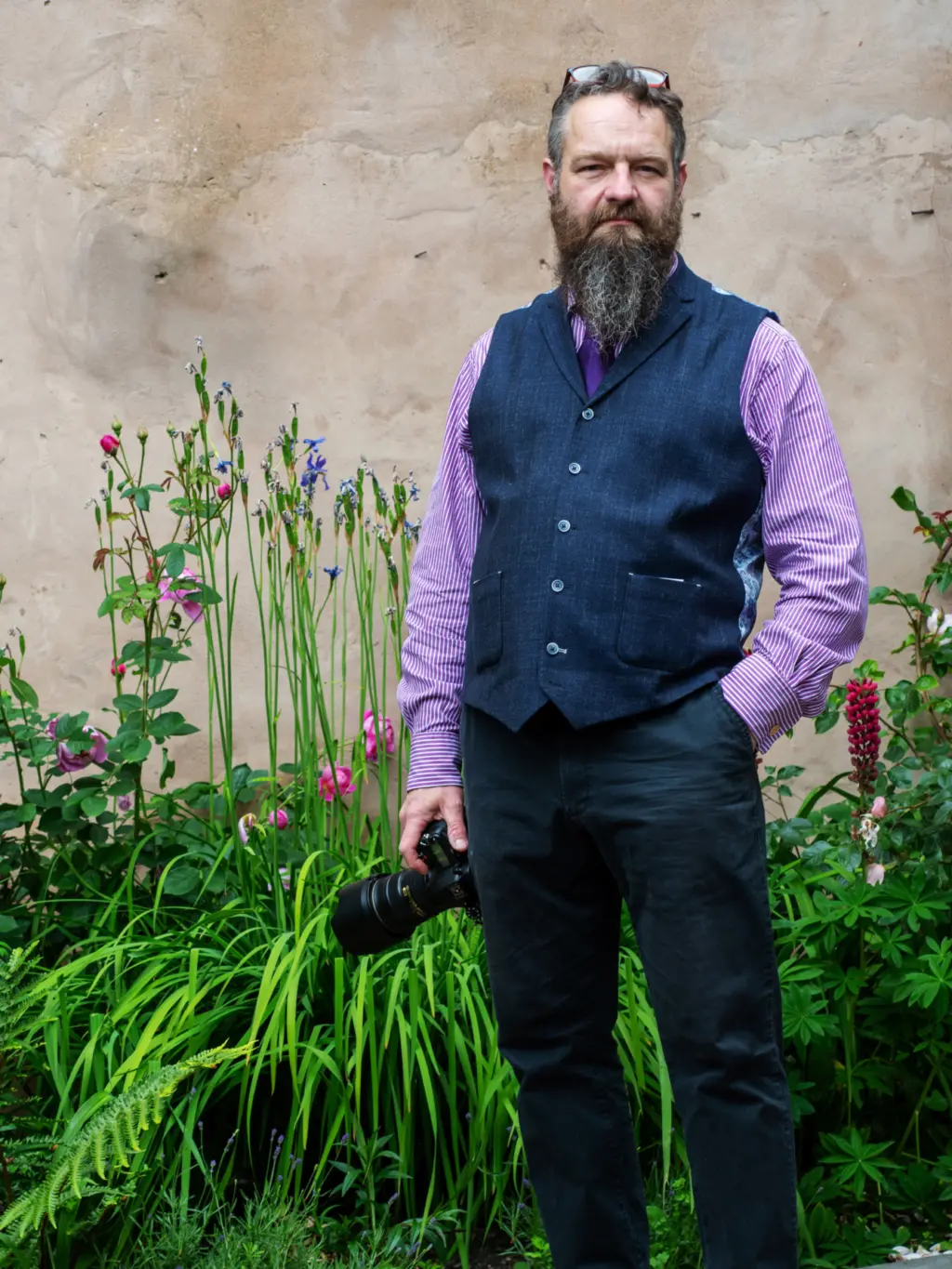
- School of Materials and Design
Dr. Oliver Cameron-Swan
Lecturer - School of Materials & Design

- Technical Demonstrator
Bronwen Tyler -Jones
Workshop Manager

- Technical Demonstrator
Jess Bulger
Print making

- Technical Demonstrator
Bryony Burn
Ceramics Specialist

- Technical Demonstrator
Tom Hancock
3D Material processes

- Technical Demonstrator
Jo Harvey
Ceramics Specialist

- Technical Demonstrator
Becky Roberts
Textiles & 3D processes
Course news

- News
- Prototyping and Physical Design
- Craftsmanship & Fabrication
- Awards
- Undergraduate
- Blacksmithing
- School of Materials & Design
Cameron Pearson wins New Designer of the Year award 2025
3 mins read time

- Craftsmanship & Fabrication
- News
- Postgraduate
- Blacksmithing
- School of Materials & Design
Embracing the power of forged metals at Hereford College of Arts new master programme
6 mins read time

- Events
- In the city
HCA School of Material & Design take over Hereford Cathedral for Reinterpret
3 mins read time

Blacksmithing Students Contribute to Historic Lord Mayor's Show
1 min read time

- News
A Hope for Peace - With Love to Ukraine
1 min read time

Australian artist Will Maguire leads the inaugural masterclass delivered thanks to the Andrew Basnett Fund
3 mins read time

HCA students featured on Sky Arts show Bill Bailey’s Master Crafters: The Next Generation
2 mins read time

Highlights from Ferrous 2024: From Earth to Iron
5 mins read time

- Staff
- Awards
Delyth Done, Head of School at HCA, awarded MBE in recognition to her services to Artist Blacksmithing and Heritage Crafts
2 mins read time

- News
BA(Hons) Artist Blacksmithing students deliver impactful Tools for Schools: Chasing nature workshop
2 mins read time
What you will learn
Foundations for learning
Designed to help you excel at Art School, this module covers essential skills like academic writing, note-taking, research, collaboration, IT basics, course structure, assessment, critical feedback, self-reflection, time management, independent learning, safety, relationships, consent, and sustainability in the creative sector.
Practice 1
This module introduces you to creativity through play and experimentation. You’ll engage with a variety of materials and processes, developing an inquisitive approach. Through drawing, making, rendering, and recording in sketchbooks and technical journals, you’ll explore “what if” scenarios and learn by doing.
Skills 1
Learn the fundamentals of forging, fabrication, and welding through professional demos and hands-on exercises. Document your progress in a technical journal, culminating in a design and make project showcasing your skills.
Practice in Context
This module gives you an introduction to the broad landscape of making & historical cultural practices. Here you will learn to analyse artefacts through engaging with era, style, function, material and technique.
Practice 2:
This is your first design and make module, where you’ll apply all the creative skills and methods you’ve learned. You’ll respond to a set brief, generate visual research, draw, design, test, make, explore, iterate, and create forged outcomes. Workshop sessions will help you initiate, reflect upon, and evaluate ideas, as well as test possibilities. This process emphasises that design and creativity are evidenced not just by the final outcomes but also by the journey taken.
Practice in Context 2
You’ll strengthen your research skills, develop critical thinking, and hone your ability to communicate ideas about creative practice. The focus is on meaning and value—key factors in cultural production. This module will help you identify your interests as a practitioner and orient yourself in the broader conversation of making.
Practice 3
In this design and make module, you’ll respond to a set brief, focusing on a specific place and considering the site. You’ll generate visual research, draw, design, test, make, explore, iterate, and create forged outcomes. At the end of this module, there will be an opportunity to exhibit your final works in a curated exhibition.
Skills 2
You’ll improve your forging skills through a technical investigation. In the first part of the module, you’ll replicate a forged object, with measuring and sequencing being critical. In the second part, you’ll choose a specific forging process and conduct a deep-dive technical investigation, documenting your processes through photography, sketches, and notes in your technical journal.
Practice 4
In this design and make module, you’ll consult with tutors to design your own brief. What key themes and ideas are you keen to explore? Are you interested in architectural work, product design, or gallery work? You’ll generate visual research, draw, design, test, make, explore, iterate, and create forged outcomes. This is a time to critically review your emerging practice and, at the end of the module, articulate your research trajectory for the final year.
Professional Practice 1
In this module, you’ll engage with the ‘creative industries’ through a Self-Devised Project or Professional Work Experience. This could involve responding to a live brief, participating in a solo or group exhibition, working alongside a designer-maker, or delivering teaching workshops in schools, hospitals, or community settings. Any practical outcome should be relevant to your own creative and professional practice goals. This experience will help you apply your skills in real-world contexts and refine your professional trajectory.
Practice in Context 3
This module allows you to demonstrate advanced skills in understanding creative practice critically and informedly. By selecting a subject that resonates with your studio practice, PIC 3 helps you contextualize the body of work you create for your final studio projects and enables you to articulate your practice with fluency and confidence.
Practice 5
This is your fifth design and make module, where you’ll clarify your research trajectory and present a proposal. You’ll generate visual research, draw, design, test, make, explore, iterate, and create forged outcomes. The module emphasizes research, experimentation, and the development of ideas as well as outcomes. This is supported by a vibrant studio culture in which design methodology is explored, expanded, and critically reflected upon.
Practice 6
In this module, you will develop an autonomous approach to your practice. You will refine and resolve a final body of forged metalwork that reflects your career aspirations. Throughout this module, you will focus on honing and refining your skills, and pushing the boundaries of your creative practice. Your final body of work will be showcased in the degree show, which serves as the launchpad for your professional career. This event provides a platform to present your work to industry professionals, potential clients, and the wider public.
Professional Practice 2
This module complements your final making module with a series of visiting speakers covering topics such as employment and self-employment, tax, copyright law, ethics, online marketing, networking, and costing work. You will receive support in preparing a creative CV, artist statements, and promotional copy. Additionally, you will be supported in taking professional photographs. This module culminates in the creation of a Graduate Portfolio to help launch your career

A community that spans the globe
Hereford Anvils is the student and graduate community that connects generations of artists blacksmiths associated with Hereford College of Arts. It has grown to become a powerful force within international blacksmithing and the UK's heritage craft community, using Instagram to share amazing work, and to unite and mobilise blacksmith through projects like the 150mm Challenge and Crosses for ukraine.
Follow Anvils on InstagramGrad Stories
Your degree
All undergraduate degrees at HCA are validated by University of Wales Trinity St David.
You can view a detailed breakdown of the course content in the Key Information Document.
This can be downloaded below.
Applying to HCA
- Minimum age 18.
- UCAS Points: Applicants applying for September 2025 entry and beyond, should have achieved 96 – 112 UCAS Tariff Points or more. However, whilst qualifications are important, our offers are not solely based on academic results. We may make offers based on other evidence of talent and suitability for the course – for more details about UCAS Tariffs tariff explanation and advice on the UCAS website. We expect all applicants to have examples of their current creative work available for submission on request.
Mature students: Applications from mature students with relevant experience will also be considered.
If you are unsure or have any questions, please contact us at registry@hca.ac.uk and we can offer further advice on HCA and the UWTSD awarding body requirements.
You can apply to HCA by making us one of your options on your UCAS application. In some cases, such as with current students, student transfers and top-ups, we also accept direct applications.
We receive a high number of application all our subject areas so we recommend that you make your application as early as possible.
You can find out out everything you need about the application process using the link below. If you have any questions, just email registry@hca.ac.uk.
Shortly after you apply, our Registry team will be in touch to let you know the details of your interview. At this point, they will also send out information on preparing your portfolio.
Interviews are a chance for you to showcase yourself. They give us an idea of what excites you about the subject, and what you might want to explore further on the course. It’s also your opportunity to ask us questions about the course to ensure it is right for you. The interview will be conducted by the Course Leader or a tutor. You’ll also have the chance to talk to current students and tour the campus, including workshops and other facilities. This is a great opportunity to get a feel for the environment and see where you could be studying.
Bring items you wish to share. We are interested in seeing how you research and develop your ideas, what inspires you, and what you have made. We want to learn what excites you and what you hope to learn, so come prepared with questions. This is your chance to show us your creativity and passion.
We understand that not all applicants have extensive forge experience. Don’t worry if your forge experience is limited. We are looking for potential and enthusiasm. We aim to conduct all interviews face-to-face; however, online interviews can be arranged.
Following your interview Registry will email you with details of the outcome.
Studying is an investment in yourself, and in your future. It’s important to understand the financial support that is available to you, and to be clear about any fees or funding associated with the course you want to study.
Follow the link below to visit our Fees and Funding pages. These pages are designed to help you plan for your future, so you can start your course with confidence in your financial situation.
Everyone’s personal circumstances are different. If you can’t find the information you need, our Student Finance team can offer additional advice.
More information

Accommodation
Your space to make pasta, make friends and make art in the heart of one of the UK’s happiest cities.

Book an open day
Chat to students. Tour the campus. Drop in on some free workshops. Our Open Days are a great way to get a feel for what makes HCA special.

How to apply
Everything you need to know about applying to HCA - and starting the next stage of your journey as an artist
How to apply
Everything you need to know about applying to HCA - and starting the next stage of your journey as an artist
Find out moreBook an open day
Chat to students. Tour the campus. Drop in on some free workshops. Our Open Days are a great way to get a feel for what makes HCA special.
Book now